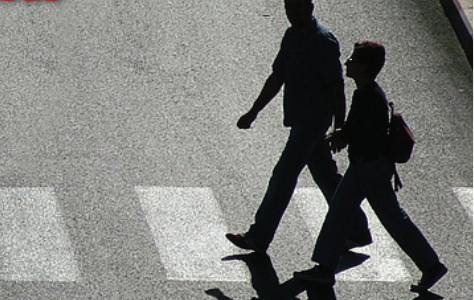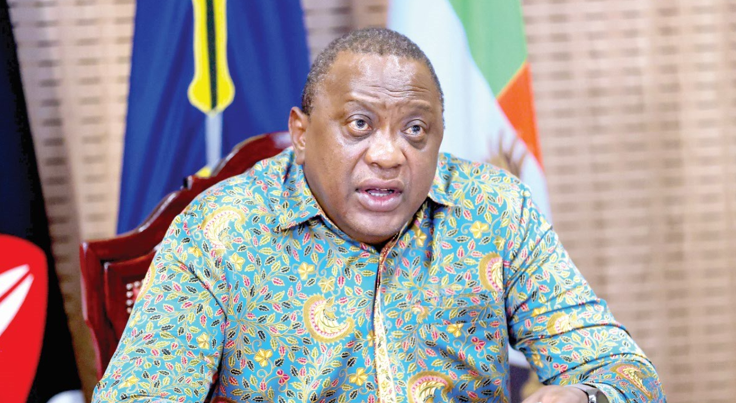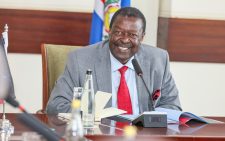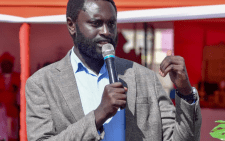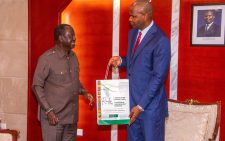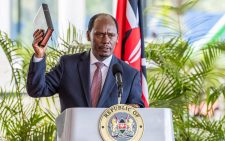Navigating the rough road of safety awareness
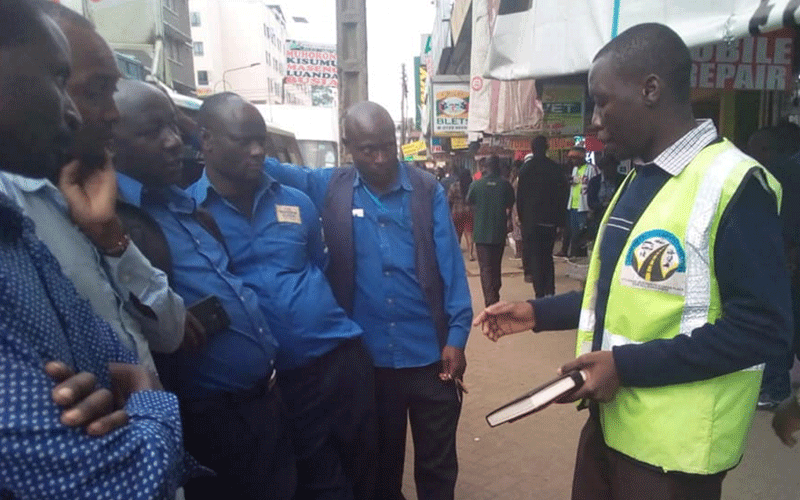
Every morning when the sun rises, many people leave home to attend to their daily routines using the road as their main mode of transport.
Some say a word of goodbye to their loved ones hoping to meet them later in the evening when they come back home.
But to others, the word goodbye is the last word they hear from their loved ones as some of them never come back after getting involved in a road accident.
They leave a big vacuum that sometimes, no one can fill. This is the reason Owuor Otet, a road safety specialist chose to educate the public about road safety.
Born and raised in Siaya county in a humble and God-fearing family, Owuor really loved the sky and wished to be a pilot. But after his Form Four at at St Mary’s Yala, he joined the police service as a recruit in 2008. “I lacked job satisfaction hence I resigned in 2010 as a coprol,” he says.
In 2012, Owuor landed a job in the field of aviation, the job which gave birth to his new passion of road safety.
He has never been a victim of a road accident neither his close family members, but he tells about an accident he witnessed in 2012, which was his turning point.
“It was a rainy Wednesday evening and I was heading to Jomo Kenyatta International Airport, where I worked.
At Cabanas, along Mombasa Road, there was heavy traffic. Among the people who were heading to the airport was one Florence Bara—a French national who had visited the country for research and tour,” he recalls.
“Florence decided to take a motorbike to the airport to catch her flight. Sadly, she didn’t make it to the airport.
She was run over by a turning truck. As a good Samaritan I took her to hospital. As a result, I could check on her daily for two months until she was finally flown to France,” he narrates.
This event made him desire to educate the public on road safety, as many accidents are preventable.
Owuor saw a need to change his road safety passion into a career and pursued several road safety short courses.
“I had done my driving course in 2009 at the National Youth Service. However, I desired to learn much about road safety. In 2014, I enrolled for various online short courses.
Some include: Road safety at Justice Institute of British Columbia, investigating motor vehicle incidents, hazard identification and risk assessment, understanding employer road safety obligations, controlling exposure to driving-related hazards and course in building an effective journey management process,” he says.
Online education
It has been a continuous process and Owuor keeps learning. “Passion will make you be a slave to your audience.
The late Nelson Mandela once said, if you love your country, you will wake up and feel pain until you do something to make it a better place. This challenged me a lot,” he says.
And thanks to the digital era, his road safety campaign reaches a wider audience through social media.
He aims to increase education awareness amongst pedestrians, drivers, cyclists and passengers as a means to boost road safety.
“Through social media, we update our public through posts, links and groups. I currently manage up to 15 road safety WhatsApp groups in Kenya, two in Zambia, one in Uganda (each with up to 257members) and the major group in Telegram, which has more than 3,000 people. I also reach other through Twitter and Instagram,” he shares.
What worries Owuor is how the number of fatalities as a result of road carnage increase year in year out. However, he feels his efforts have not been in vain.
“It is clear that our efforts to address road safety is working. Going through people’s feedback at our social media platforms, you notice we are impacting people,” he says.
Owuor is grateful for the support of National Transport and Safety Authority (NTSA) and non-governmental organisations for partnering with him in this endeavour.
He opens up on the challenges he faces in his line of duty, one of them being lack of finances.
“Many time I rush to accident scenes even before the police or emergency services and have to call for help,” Owuor adds.
And on social media, he sometimes faces critics who argue with him without facts.
“Sometimes you may give vital information only for some people to start abusing you.
They may argue with you and give the reference only to realise that the rule belongs to a different country’s highway code,” he explains.
“The journey is never easy, especially on road safety awareness. A culture we don’t have and are struggling to understand.
It will always be bumpy, rough, hard with alot of turbulence and full of insult.
If I don’t experience such, then I should give up because the message is meaningless,” he adds.
Responsible citizenship
On his aspirations concerning road safety, Owuor says that he will be a happy man when our roads would be safe.
“Kenyans should espouse safety as a matter of fact, and road accidents should not be one of the leading causes of deaths in Kenya.
This can be possible if we become responsible while on road. When we would see the red traffic light as “stop” and not a wastage of time.
When we will stop overlapping or speeding and be mindful of other road users,” he says.
Many drivers, he says, have now resumed their work after cessation of movement to and from Nairobi, Mombasa and Marsabit counties were lifted.
“Most vehicles had remained parked for a long time. Before starting your journey ensure your vehicle is in perfect condition.
The curfew is still on and this will require drivers to plan their journey well- if you see you won’t reach your destination on time, carry forward the travel, stay safe, stay sane,” Owuor says in conclusion.
